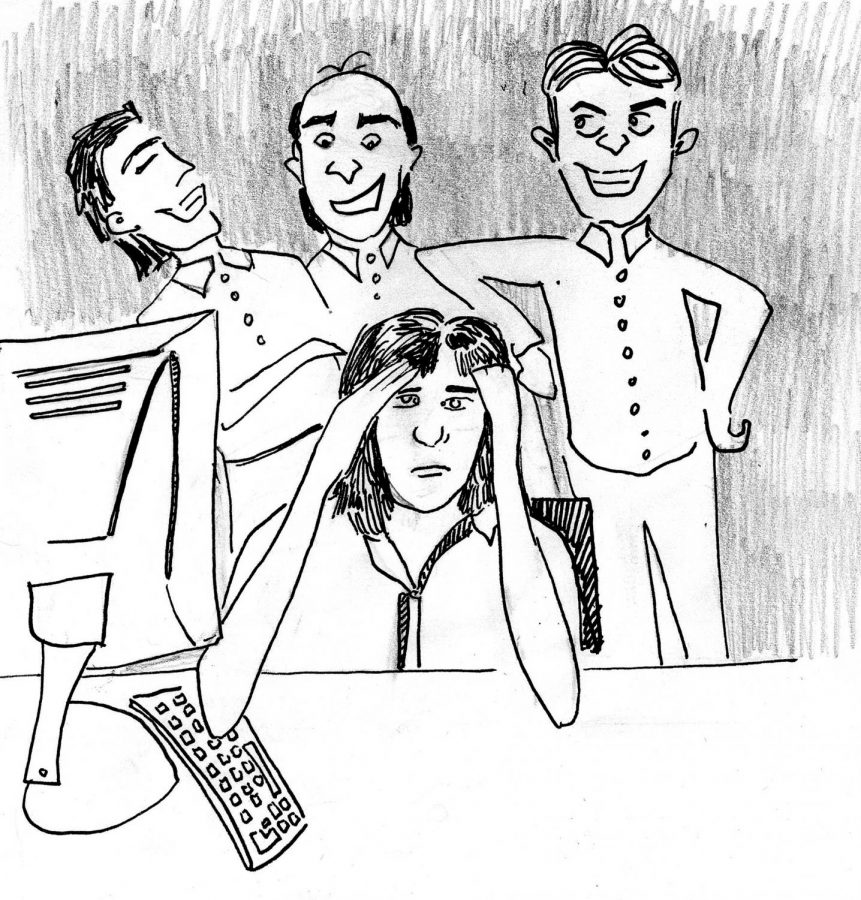Call out gender bias issue
April 18, 2018
This week, a discrimination lawsuit four years in the making is finally going to trial.
Cindy Ruescher, former UVM Enterprise Technology Services employee, accused the University of gender discrimination, creating a hostile workplace and firing her for complaining of discrimination issues.
The court will decide whether or not Ruescher’s accusations are valid. But whether or not the jury sides with her case, we know that gender discrimination and equal pay in Vermont are real issues.
The National Partnership for Women and Families released a state-by-state wage gap analysis April 10, Equal Pay Day. In Vermont, which ranks fifth in fair pay, women receive $6,718 less each year than men in the workforce.
That’s a big chunk of change.
The annual difference could pay for half a year of groceries for a family of four, according to the U.S. Department of Agriculture.
Ruescher’s trial brings up more than just equal pay concerns. She claims UVM was a hostile workplace. One of her co-workers admits to watching porn.
In emails, her co-workers refer to her as “mother of two.” For whatever reason, she is passed over for promotions and training opportunities.
The evidence shows Ruescher was working in an office that would be uncomfortable for many women.
Gender discrimination is insidious precisely because it is so hard to identify.
In Ruescher’s case, her superiors say she was passed over because she lacked experience in mobile design. If so, what factors prevented her from getting experience in the first place?
In issues of discrimination and identity, there are 1,000 excuses for why the person with a marginalized identity was passed over for the promotion. A valid one to consider is their identity.
This trial gives us the opportunity to examine our own workplaces and classrooms.
The question is not “Is there discrimination here?” The question is “How does discrimination affect my place in the world?”








